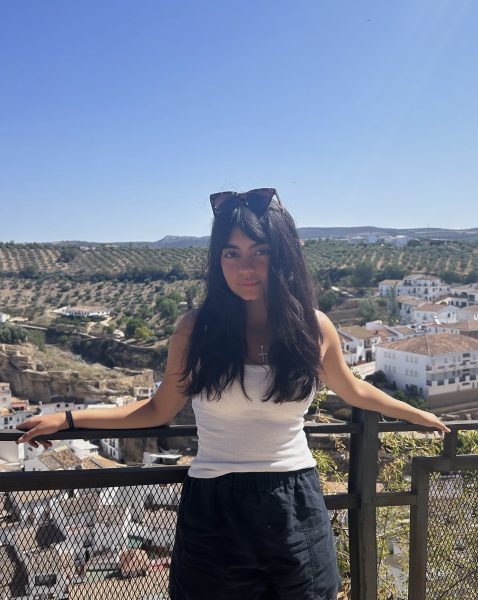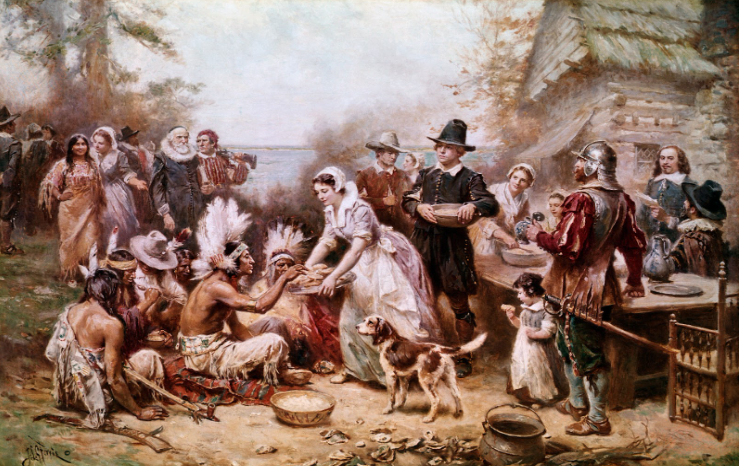The True History of Thanksgiving
Warm toasted cornbread, buttery mashed potatoes, and of course, a giant turkey bursting with flavor sit on the dinner table. Families gather around to eat, their laughs echoing throughout the dining room. These comforting visuals are what come to mind when thinking of Thanksgiving, but do you know about the dark origins of this nationally-loved holiday?
Most people know the story of Thanksgiving through elementary school coloring activities and glorified history lessons. We were taught that after the Pilgrims docked in the Americas, they were welcomed by the Native Americans, who helped them with their harvest. The grateful Pilgrims then invited the Native Americans to join them for a harmonious feast celebrating newfound friendship. While this account is beloved, it actually omits much of the real story of Thanksgiving.
That rosy picture we all hold dear hides a dark truth. While the feast went swimmingly, the Pilgrims brought foreign diseases to the unsuspecting Wampanoag tribe. The Native Americans were wiped out at high rates, which made it easier for the colonizers to take their land. Later on, settlers would even kidnap and sell vast numbers of Native Americans into slavery, a horrific but not wellknown piece of history.
After the grand feast that the Pilgrims shared with the tribe, they went on to celebrate more Thanksgivings in the years to come, and added in prayers. However, the real reason they celebrated Thanksgiving in this religious manner, was due to the forgiveness they sought after massacring native groups. For instance, a Massachusetts Governor declared a day of Thanksgiving when pilgrims murdered 700 Pequot natives.
To this day, Americans still celebrate Thanksgiving, regardless of the holiday’s dark truth, which constantly reminds indigenous people of the genocide of their ancestors. Non-natives dressing up in headdresses, feathers, and Native American sacred dress certainly adds fuel to the raging fire.
Instead of mocking natives and spreading the falsely optimistic story that they lived with colonizers in harmony, we should take part in the day to commemorate the indigenous people who were slaughtered and the innocent lives lost. Do not partake in stereotypes against natives that could appear in school, sporting events, and holiday decorations; instead, consider buying food and other goods from Native American growers in your area to meaningfully celebrate this year’s Thanksgiving.

Ponthea is a senior returning for her fourth year at the Banner. You can find Ponthea hanging out with friends, In the library, walking around school...


